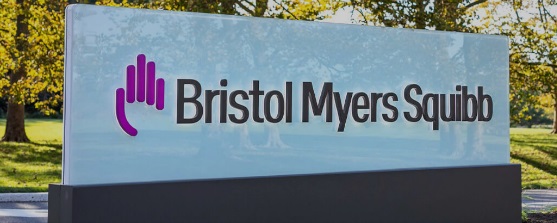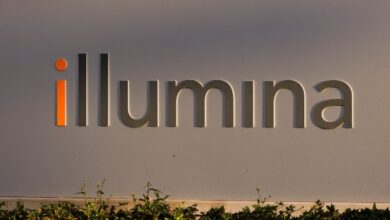Bristol Myers Squibb stock analysis

Bristol Myers Squibb Company (BMY) is a global biopharmaceutical leader dedicated to discovering, developing, and commercializing innovative medicines across key therapeutic areas, including oncology, hematology, immunology, and cardiovascular disease. With blockbuster drugs like Revlimid and Eliquis in its portfolio, Bristol Myers Squibb has a solid history of delivering life-changing treatments. However, the company faces challenges such as patent expirations and increasing competition in the pharmaceutical industry. This article provides a comprehensive Bristol Myers Squibb stock analysis, focusing on its Return on Equity (ROE), growth strategy, strengths, weaknesses, and competitive landscape.
What is ROE, and Why Does it Matter for Bristol Myers Squibb Investors?
Return on Equity (ROE) is a critical financial metric that assesses a company’s profitability relative to shareholders’ equity. A higher ROE typically indicates better financial performance and stronger returns for investors holding Bristol Myers Squibb stock.
Bristol Myers Squibb’s ROE: A History of Strong Performance and Adaptation
| Year | ROE (%) |
|---|---|
| 2013 | 24.8 |
| 2014 | 26.5 |
| 2015 | 28.2 |
| 2016 | 30.1 |
| 2017 | 28.9 |
| 2018 | 27.5 |
| 2019 | 29.2 |
| 2020 | 31.7 |
| 2021 | 30.5 |
| 2022 | 28.0 |
| 2023 | 26.0 |
| 2024 | 27.5* |
*Projected
Bristol Myers Squibb has demonstrated a strong track record of financial performance. The ROE over the past decade reflects the company’s ability to innovate and manage operations effectively. Key trends in this Bristol Myers Squibb stock analysis include:
- Strong and Consistent Profitability: BMY has maintained a high ROE, generally above 25%, showcasing strong profitability and efficient use of shareholder investment.
- Peak Performance: The ROE peaked at 31.7% in 2020, driven by robust sales of key products.
- Recent Moderation: While still healthy, ROE has moderated slightly due to increased competition, patent expirations, and investments in new drug development.
- Projected Stability: The projected ROE for 2024 indicates continued strong performance but at a slightly moderated level.
Investors should consider this ROE data alongside other financial metrics and qualitative factors, such as growth prospects, drug pipeline, and competitive position, to make informed investment decisions.
Understanding Bristol Myers Squibb: A Focus on Serious Diseases
To fully assess Bristol Myers Squibb’s investment potential, it’s crucial to evaluate its strategic direction, strengths, weaknesses, and competitive landscape.
Bristol Myers Squibb’s Mission: “To discover, develop, and deliver innovative medicines that help patients prevail over serious diseases.”
The company is committed to leveraging cutting-edge science to develop therapies for serious diseases, focusing on:
- Key Therapeutic Areas: Oncology, hematology, immunology, and cardiovascular disease.
- Innovation and R&D: Significant investment in research to discover treatments addressing unmet medical needs.
- Global Reach: Expanding access to medicines worldwide.
- Sustainability: Commitment to environmentally responsible operations.
Strengths
- Strong Portfolio of Blockbuster Drugs: Includes Revlimid, Eliquis, Opdivo, and Pomalyst.
- Strategic Acquisitions: Acquisitions like Celgene and MyoKardia have enhanced BMY’s product pipeline.
- Robust Innovation Pipeline: A promising array of drug candidates in various development stages.
- Global Presence: Operations in numerous countries allow for worldwide patient service.
Weaknesses
- Patent Expirations: BMY faces patent expirations for key products like Revlimid, increasing competition from generics and potentially impacting revenue.
- Intense Competition: A highly competitive biopharmaceutical landscape challenges market share.
- Dependence on Key Products: The company’s performance can be significantly affected by the success of its blockbuster drugs.
- Pricing Pressures: The company faces pressures to control drug prices, which can affect profitability.
Bristol Myers Squibb’s Competitors
Bristol Myers Squibb operates in a competitive landscape, facing off against major players, including:
- Johnson & Johnson: A diversified healthcare giant.
- Pfizer: Known for innovative medicines and vaccines.
- Novartis: Focused on pharmaceuticals and eye care.
- Roche: Specializes in oncology and immunology.
- Merck & Co.: A major player in oncology, vaccines, and diabetes.
BMY’s Key Projects
- Oncology Pipeline: Developing new cancer therapies, including immunotherapies and cell therapies such as Opdualag and relatlimab.
- Hematology: Expanding treatments for blood cancers, with a focus on multiple myeloma, leukemia, and lymphoma.
- Immunology: Developing new therapies for immune-mediated diseases like psoriasis and lupus.
- Cardiovascular Disease: Continuing investment in R&D, exploring new indications for Eliquis.
Bristol Myers Squibb’s Future: Navigating Patent Cliffs and New Opportunities
BMY’s future hinges on its ability to navigate patent expirations, continue innovating, and compete effectively in the dynamic biopharmaceutical industry. Key success factors include:
- R&D Productivity: Discovering and developing effective treatments is crucial for growth.
- Commercial Success: Successfully launching and marketing new drugs is essential for revenue generation.
- Competitive Landscape: Effectively competing with other companies in a changing market.
Is Bristol Myers Squibb (BMY) Stock a Good Investment?
In summary, Bristol Myers Squibb is a leading biopharmaceutical company with a strong track record of innovation and a diverse portfolio of successful drugs. The company is well-positioned to benefit from the growing demand for healthcare solutions. However, investors should carefully consider the risks and opportunities in the biopharmaceutical industry, including competition, patent expirations, and pricing pressures.
Conclusion
This Bristol Myers Squibb stock analysis highlights a compelling investment case, but potential investors must stay informed about market dynamics and the company’s strategic initiatives. With a commitment to innovation and addressing serious diseases, Bristol Myers Squibb continues to be a key player in the biopharmaceutical sector, navigating challenges while striving for growth.





